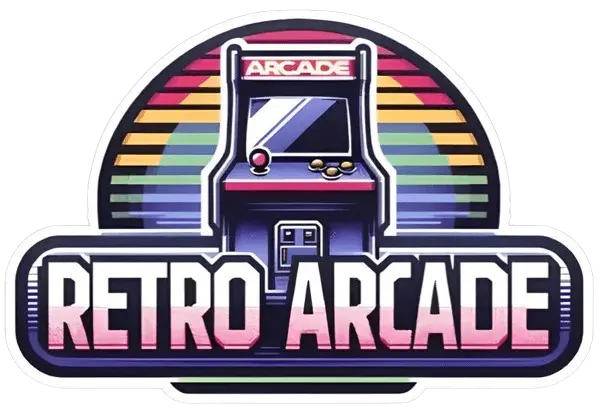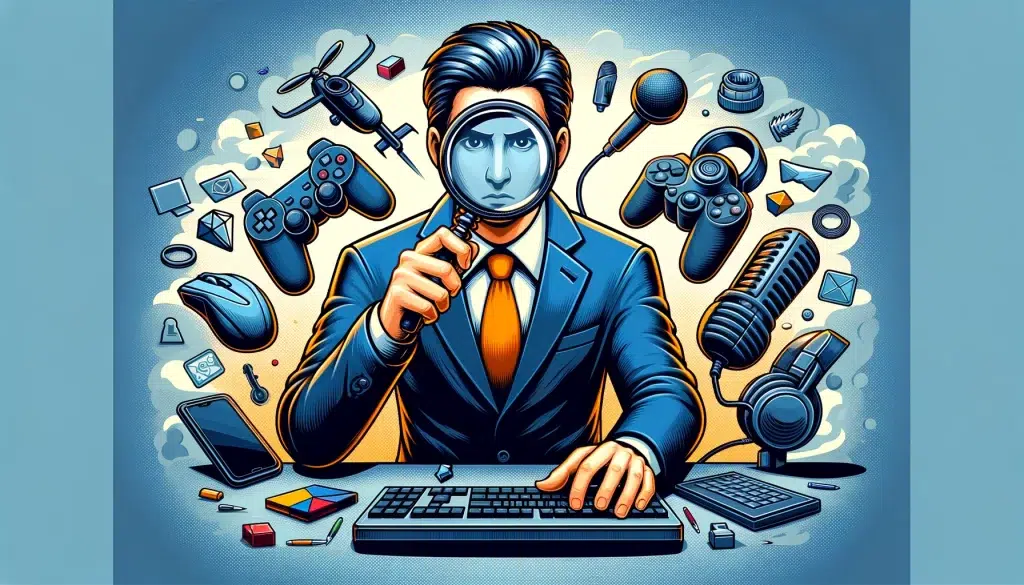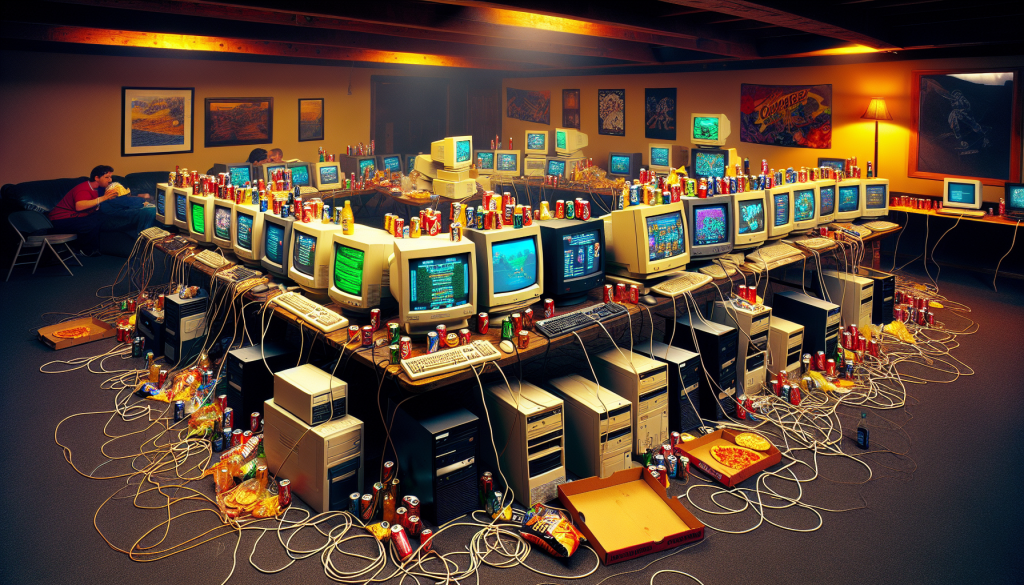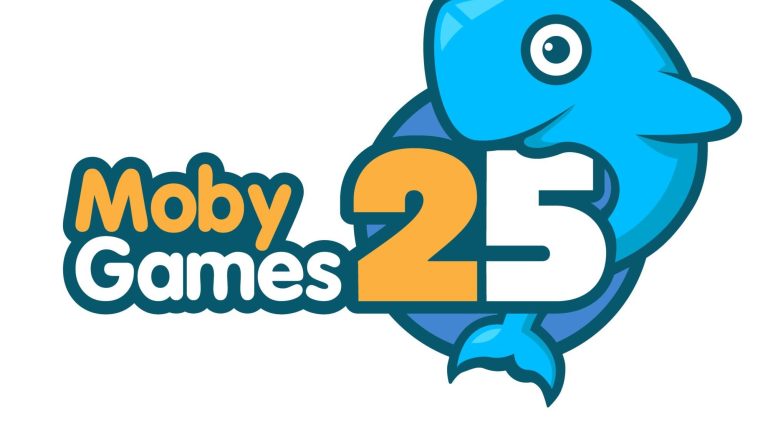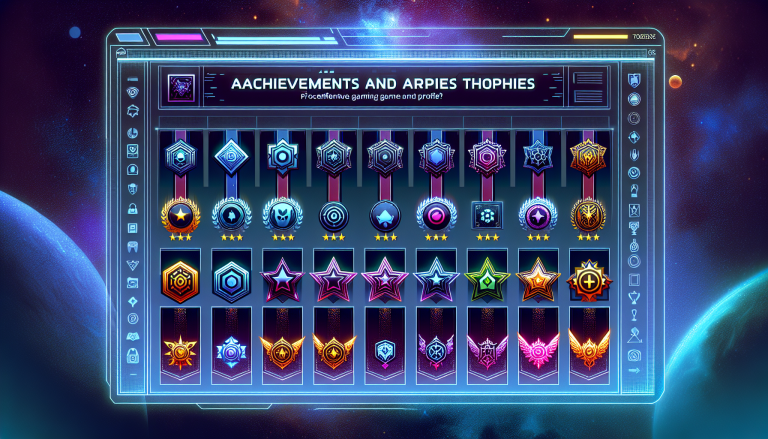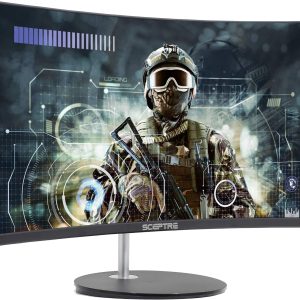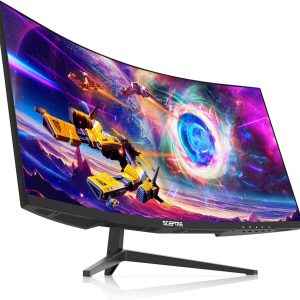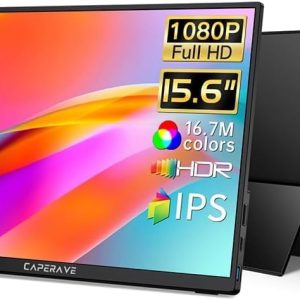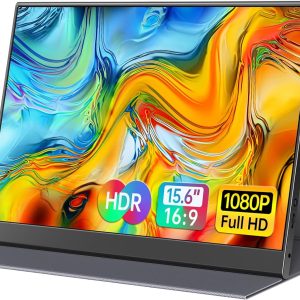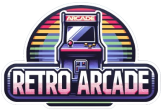Reliving the Classics: The Emulation Wave
Welcome, fellow gamers, to a world where the past meets the present! In this article, we’ll dive into the fascinating world of emulation technology and how it has allowed us to relive the classics on modern devices. Whether you’re a seasoned gamer or just starting your gaming journey, get ready to embark on a nostalgic adventure!
What is Emulation Technology?
Emulation technology is like a time machine for games. It allows us to play older games on modern devices by mimicking the hardware and software of the original gaming systems. Think of it as a virtual console that can bring vintage games back to life!
Imagine playing your favorite childhood games, even if the original console is no longer in production. With emulation, you can enjoy the classics without hunting down rare and expensive hardware.
The Advantages of Emulation
Emulation technology offers several advantages that make it a game-changer in the gaming community:
Accessibility: Bringing classic games to a wider audience
Many older games are only available on outdated consoles or physical copies that may be hard to find. Emulation technology breaks down these barriers, allowing anyone with a modern device to experience the joy of playing these timeless classics.
Preservation: Ensuring the longevity of gaming history
Emulation technology plays a crucial role in preserving gaming history. By emulating older systems, it ensures that iconic games are not lost to time. It’s like having a digital museum of gaming, where future generations can appreciate the games that shaped the industry.
Enhanced Experience: Improving graphics and performance on modern hardware
Emulation technology not only brings classic games to modern devices but also enhances their visuals and performance. Emulators often offer features like upscaling, anti-aliasing, and texture enhancements, making the games look even better than they did back in the day. Plus, with modern hardware, you can enjoy smoother gameplay and faster load times.
Popular Emulation Platforms
Now that you’re familiar with the benefits of emulation, let’s explore some popular emulation platforms:
- Retropie: A popular emulation software that transforms your Raspberry Pi into a retro gaming console. It supports a wide range of systems, including NES, SNES, Sega Genesis, and more.
- ePSXe: An emulator specifically designed for PlayStation games. It offers excellent compatibility and advanced features, such as save states and cheat codes.
- Dolphin: If you’re a fan of GameCube and Wii games, Dolphin is the emulator for you. It boasts impressive performance and an active community.
- PCSX2: Another fantastic PlayStation emulator, PCSX2 allows you to enjoy PS2 games on your computer. It offers customizable graphics settings and support for various controllers.
Legal and Ethical Considerations
Before diving into the world of emulation, it’s important to understand the legal and ethical considerations:
While emulation itself is not illegal, downloading and playing copyrighted games without proper authorization is against the law. It’s crucial to support game developers and publishers by purchasing official releases whenever possible. However, there are legal alternatives, such as public domain games and homebrew software, that can be enjoyed through emulation.
Additionally, it’s essential to respect the intellectual property rights of game creators. Emulation technology should be used to preserve gaming history and for personal enjoyment, rather than facilitating piracy.
Getting Started with Emulation
Ready to embark on your emulation journey? Follow these steps to get started:
- Choose an emulation platform that suits your needs.
- Download and install the emulator on your device.
- Find legally and ethically sourced ROMs (game files). Websites like The Internet Archive and My Abandonware offer a wide selection of public domain and abandonware games.
- Configure the emulator settings for optimal gameplay experience. You can customize graphics, audio, and controller options to suit your preferences.
- Load the ROM file into the emulator and start playing!
Challenges and Limitations of Emulation
While emulation technology opens up a world of possibilities, it does come with some challenges and limitations:
- Hardware requirements and system compatibility can be a hurdle. Some emulators may require powerful hardware to run smoothly, and not all games are compatible with every emulator.
- Emulation accuracy can vary. Some emulators might have issues with certain games, leading to glitches or gameplay inconsistencies.
- Emulating certain consoles or games can be challenging due to complex hardware architectures or lack of documentation.
Future of Emulation Technology
The future of emulation technology looks promising. With advancements in hardware and software, we can expect even better performance and compatibility. Emulation is also making its way into cloud gaming platforms, allowing players to access a vast library of classic games without the need for local emulation.
However, it’s important to remember that while emulation technology can unlock access to classic games, it’s crucial to respect copyright laws and support game developers by purchasing official releases whenever possible. By doing so, we can ensure the continued growth and prosperity of the gaming industry.
So, my fellow gamers, are you ready to embark on an emulation adventure? Dust off those classic games and get ready to relive the magic! Happy gaming!
The Advantages of Emulation
Emulation technology has revolutionized the gaming world by allowing us to relive the classics. With emulation, old games that were once confined to outdated hardware can now be played on modern devices, bringing a wave of nostalgia and excitement. Let’s dive into the advantages of emulation and why it has become so popular.
Accessibility: Bringing classic games to a wider audience
One of the greatest benefits of emulation is its ability to make classic games accessible to a wider audience. Many retro games are no longer available for purchase and can only be found in second-hand shops or online marketplaces at exorbitant prices. Emulation allows gamers to experience these timeless classics without breaking the bank. Whether you missed out on the original release or simply want to revisit your childhood favorites, emulation opens the doors to a vast library of games that were once out of reach.
Furthermore, emulation technology eliminates the need for specific gaming consoles or cartridges. You can now enjoy games from a variety of platforms, including Nintendo, Sega, and PlayStation, all on one device. This convenience allows you to build your own personalized gaming library without cluttering your living space with multiple consoles.
Preservation: Ensuring the longevity of gaming history
Another crucial advantage of emulation is its role in preserving gaming history. As technology advances, older gaming systems become obsolete, and the physical copies of games deteriorate over time. Emulation technology acts as a digital preservation tool, ensuring that these games are not lost to time.
By emulating games on modern devices, we can safeguard gaming history and maintain access to these cultural artifacts. It allows future generations to experience the evolution of gaming and appreciate the groundbreaking titles that laid the foundation for the industry we know today.
Enhanced Experience: Improving graphics and performance on modern hardware
Emulation not only allows us to play classic games but also enhances the gaming experience on modern hardware. By utilizing the power of modern devices, emulators can improve graphics, increase resolution, and enhance performance. This means that old games can be enjoyed with improved visuals and smoother gameplay.
Additionally, emulation technology often includes features such as save states, which allow players to save their progress at any point in the game. This eliminates the need for limited lives or passwords, making the gaming experience more convenient and enjoyable.
Emulation also opens the door to customization options, allowing players to modify games and apply patches or mods to enhance gameplay or fix bugs. This level of flexibility gives gamers the freedom to tailor their gaming experience to their preferences.
Overall, emulation technology has transformed the way we experience and interact with classic games. It brings accessibility, preservation, and enhanced experiences to the forefront, allowing us to relive the classics in a whole new way. So, dust off those old cartridges, fire up your emulator, and get ready to embark on a nostalgic journey through gaming history.
Popular Emulation Platforms
Emulation technology has become increasingly popular among gamers who want to relive the classics on modern devices. There are several popular emulation platforms available that offer a variety of features and functionalities. Let’s take a closer look at some of the most well-known platforms:
1. RetroArch:
RetroArch is a powerful and versatile emulation platform that supports a wide range of gaming systems. It provides a unified interface for accessing different emulators, making it convenient for users to switch between games and consoles. RetroArch also offers advanced features such as shader support for enhancing graphics, netplay for multiplayer gaming, and save state functionality.
2. Dolphin:
Dolphin is a top-notch emulator specifically designed for Nintendo GameCube and Wii games. It has gained a reputation for its accuracy and performance, allowing users to experience these classic games with improved graphics and smooth gameplay. Dolphin supports various enhancements like high-definition texture packs and widescreen display options.
3. PCSX2:
If you’re a fan of PlayStation 2 games, PCSX2 is the go-to emulator. It offers compatibility with a vast library of PS2 games, allowing you to play them on your computer. PCSX2 provides options for upscaling graphics, improving texture quality, and enhancing frame rates. It also has support for gamepad controllers, making the gameplay experience more authentic.
4. Citra:
Citra is an outstanding emulator for Nintendo 3DS games. It allows you to play popular titles from the handheld console on your PC. Citra offers features like high-resolution rendering, customizable controls, and support for online multiplayer. It also provides options for adjusting emulation settings to optimize performance.
5. PPSSPP:
PPSSPP is a highly regarded emulator for PSP (PlayStation Portable) games. With PPSSPP, you can enjoy a vast library of PSP titles on your computer or mobile device. The emulator offers various enhancements like anisotropic filtering, texture scaling, and support for gamepad controllers. It also allows you to save and load game states, making it convenient for on-the-go gaming.
These are just a few examples of popular emulation platforms, but there are many others available for different gaming systems. It’s essential to explore and find the emulator that best suits your needs and preferences.
When using emulation platforms, it’s important to keep in mind that the legality of game emulation can be a gray area. While emulating games you already own is generally considered legal, downloading and playing ROMs (copies of games) without permission from the copyright holder is often illegal. It’s crucial to respect copyright laws and support game developers and publishers by purchasing official releases whenever possible.
In conclusion, emulation platforms provide a fantastic opportunity for gamers to relive classic games on modern devices. With features like improved graphics, performance enhancements, and support for different gaming systems, these platforms make it easier than ever to experience the nostalgia of the past. Just remember to use emulation responsibly and respect the rights of game developers and publishers. Happy gaming!
Legal and Ethical Considerations
When it comes to the world of game emulation, it’s important to understand the legal and ethical implications surrounding this technology. While emulation itself is not illegal, the act of downloading and playing copyrighted games without permission is against the law. It’s crucial to respect the rights of game developers and publishers.
So, how can you enjoy the benefits of emulation while staying on the right side of the law? Here are a few tips and considerations:
1. Respect Copyright Laws
When it comes to game emulation, the first rule of thumb is to always respect copyright laws. This means not downloading or distributing games that you do not own the rights to. Emulation technology should be seen as a way to preserve and experience classic games, not as a means to obtain them for free.
2. Support Game Developers
One of the best ways to show your appreciation for classic games is by supporting the developers and publishers. If a game is available for purchase in a legitimate format, consider buying it instead of resorting to emulation. By supporting the creators, you contribute to the future development of new and innovative games.
3. Emulate Games You Already Own
If you already own a physical copy of a game, using emulation technology to play it on a modern device can be a great way to relive the nostalgia. Make sure to create backup copies of your games and only use them with the appropriate emulator. This way, you can enjoy your favorite classics without infringing on any copyright laws.
4. Embrace Open-Source and Public Domain Games
There are many open-source and public domain games available that can be legally emulated. Open-source games are those whose source code is freely available, allowing for modification and distribution. Public domain games, on the other hand, are games whose copyrights have expired or have been forfeited. Emulating these games is a great way to explore the rich history of gaming while staying within legal boundaries.
5. Educate Yourself
Take the time to research and educate yourself about the legal and ethical aspects of game emulation. Stay informed about any changes in copyright laws or regulations that may impact the emulation community. By understanding the rules and regulations, you can navigate the world of emulation responsibly.
Remember, the purpose of game emulation is to preserve and celebrate the rich history of gaming. It’s essential to strike a balance between enjoying classic games and respecting the rights of the creators. By following these guidelines, you can embrace the wonders of emulation while staying on the right side of the law. Happy gaming!
Getting Started with Emulation
So, you’ve heard about the wonders of emulation technology and you’re eager to dive into the world of reliving classic games on your modern device. Well, you’re in luck! In this section, we’ll provide you with a step-by-step guide on how to get started with emulation.
1. Choose Your Emulator:
The first step is to select an emulator that suits your needs. There are several popular emulation platforms available, each with its own unique features and functionalities. Some of the most well-known emulators include RetroArch, Dolphin, and PCSX2. Do a bit of research to find the emulator that best matches the gaming system or consoles you want to emulate.
2. Download and Install the Emulator:
Once you’ve chosen your preferred emulator, visit the official website or a trusted source to download the software. Make sure to download it from a reputable site to avoid any malware or viruses. Follow the installation instructions provided by the emulator’s website or documentation.
3. Acquire Game ROMs:
Now, you’ll need to find game ROMs, which are essentially digital copies of the games you want to play. It’s important to note that downloading ROMs for games you don’t own is illegal. However, if you own the original game cartridges or discs, you are legally allowed to create your own backup ROMs. Some websites also offer legal and authorized ROM downloads for certain games. Be sure to do your due diligence and only obtain ROMs legally and ethically.
4. Configure the Emulator:
Once you have your emulator installed and your game ROMs ready, it’s time to configure the emulator settings. This step may vary depending on the emulator you’re using, but most emulators have options to adjust graphics, audio, and control settings. Take some time to explore the settings and customize them to your liking.
5. Load the Game ROM:
Now comes the exciting part! Open your emulator and look for an option to load or open a game ROM. Use the file browser to locate the game ROM you want to play and select it. The emulator should then start running the game, allowing you to relive those classic gaming moments right on your modern device.
6. Fine-Tune the Settings:
Once the game is loaded, you may need to make further adjustments to optimize your gameplay experience. This could include tweaking graphics settings, adjusting controller mappings, or enabling specific features like save states or cheat codes. Experiment with different settings until you find the perfect configuration for the game you’re playing.
Remember, while emulation technology opens up a world of possibilities for playing classic games, it’s crucial to respect copyright laws and support game developers whenever possible. Emulation should be seen as a way to preserve gaming history and enjoy games that may no longer be easily accessible. So, as you embark on your emulation journey, be sure to do so responsibly and with a love for the games that have shaped the gaming landscape we know today. Happy gaming!
Challenges and Limitations of Emulation
Emulation technology has come a long way in allowing us to relive the classics, but it’s not without its challenges and limitations. Let’s take a closer look at some of these hurdles:
1. Hardware Requirements and System Compatibility Issues
While modern hardware is more powerful than ever, some older consoles and games require specific hardware configurations to run smoothly. Emulation software may struggle to replicate the exact specifications of the original gaming systems, resulting in performance issues or compatibility problems. It’s important to check the system requirements and ensure your device meets the necessary specifications for optimal emulation.
2. Emulation Accuracy and Potential Glitches
Emulating an entire gaming system is no easy task, and even the best emulation software may still have some inaccuracies or glitches. Certain games may not run as smoothly as they did on the original hardware, and you may encounter graphical or audio issues. Emulation is an ongoing process, and developers are constantly working to improve accuracy and address any bugs or glitches that arise.
3. Difficulty in Emulating Certain Consoles or Games
Some consoles or games pose greater challenges for emulation due to their unique architectures or proprietary software. This can make it more difficult to find reliable emulation solutions or dedicated emulators for these systems. However, as emulation technology continues to advance, we can expect to see more support for a wider range of consoles and games in the future.
While these challenges and limitations may exist, it’s important to remember that emulation technology has made significant strides in recent years. With the right hardware and software setup, you can still enjoy a vast library of classic games from various console generations.
Ultimately, it’s up to you to decide if the benefits of emulation outweigh the potential drawbacks. If you’re passionate about preserving gaming history and experiencing old classics on modern devices, emulation can be a great option. However, it’s crucial to respect copyright laws and support game developers by purchasing official releases whenever possible.
As you embark on your emulation journey, be sure to stay up to date with the latest advancements in emulation technology. Emulation software is constantly improving, with developers working to enhance performance, accuracy, and compatibility. Keep an eye out for updates and new releases that may address some of the challenges mentioned above.
In conclusion, while emulation technology has its challenges and limitations, it has opened up a world of possibilities for reliving the classics. With the right setup and a passion for gaming history, you can dive into the nostalgia of old favorites on your modern devices. Just remember to respect the legal and ethical considerations surrounding emulation, and support game developers whenever possible. Happy gaming!
Future of Emulation Technology
Emulation technology has come a long way in bringing classic games to modern devices, but what does the future hold for this fascinating technology? Let’s take a look at some exciting advancements and potential impacts on the gaming industry.
Advancements in Emulation Technology
As technology continues to evolve, so too does emulation technology. We can expect to see improvements in performance, graphics, and overall emulation accuracy. Emulators are constantly being updated and optimized to provide a seamless gaming experience, ensuring that the classics can be enjoyed just as they were intended.
One area of focus for future advancements is compatibility with newer gaming systems. As new consoles and platforms enter the market, developers are working on creating emulators that can support these systems. This means that in the future, we may be able to play not only classic games but also recent releases on our favorite emulators.
Emulation on Cloud Gaming Platforms
Cloud gaming platforms have gained popularity in recent years, allowing users to stream games directly from remote servers. This technology has the potential to revolutionize emulation by providing a convenient and seamless way to play classic games.
Imagine being able to access a vast library of retro games through a cloud gaming service, without the need to download or install anything. With the power of cloud computing, emulators could run smoothly on any device with an internet connection, bringing the classics to a wider audience.
Potential Impact on the Gaming Industry
The growing popularity of emulation technology may have a significant impact on the gaming industry. While some may argue that emulators promote piracy and undermine the sales of official game releases, others believe that they can actually help drive interest in retro gaming and increase sales of remastered or re-released versions of classic titles.
Emulation allows gamers to experience the nostalgia of playing beloved classics, which can spark a renewed interest in the history and evolution of video games. This interest can lead to increased demand for officially licensed merchandise, collectors’ editions, and even new titles inspired by the classics.
Furthermore, the availability of emulators on multiple platforms and devices can create new opportunities for game developers. Indie developers, for example, can create games specifically designed to be played on emulators, tapping into the nostalgia market and reaching a wider audience.
The future of emulation technology is undoubtedly exciting. With advancements in performance, compatibility, and cloud gaming platforms, we can expect to see even more classic games being brought back to life on modern devices. Emulators have the potential to shape the gaming industry by preserving gaming history, generating interest in retro gaming, and providing new opportunities for developers.
However, it is crucial to remember the importance of respecting copyright laws and supporting game developers by purchasing official releases whenever possible. Emulation should be seen as a way to relive and appreciate the classics, while also acknowledging the hard work and creativity that goes into creating these games.
So, whether you’re a seasoned retro gamer or new to the world of emulation, the future looks bright for reliving the classics and experiencing the magic of gaming history. Get ready to immerse yourself in a world of pixelated nostalgia and embark on unforgettable gaming adventures. Happy gaming!
As an affiliate of Amazon and other retailers, we may earn a small commission when you buy via our links, at no additional cost to you. Thank you!
